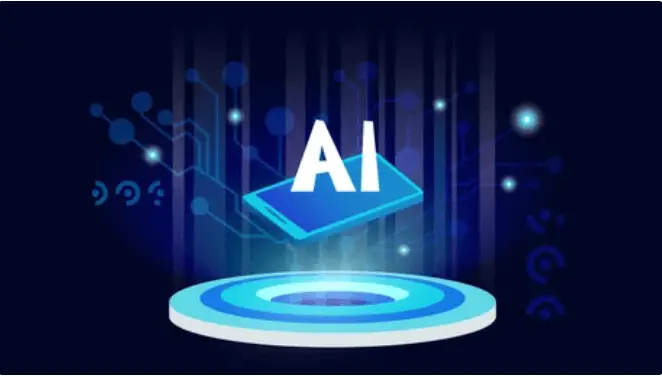
Visits: 1
What Jobs Will Likely Be Replaced By AI?
Table of Contents
- Jobs that may be fully replaced by AI
- Jobs That May Be Partially Replaced with AI
- Jobs that AI will enhance
- Conclusion
What if you knew you might lose your job to technological innovation in the next ten years? What would be your next line of action? Will you believe it and look for ways to stop it from happening, or will you rebuke it and keep moving until it happens?
The job market is quite competitive, and recently, we also have had to compete with technologies to keep the jobs we have worked so hard for. One common news that has been making rounds worldwide is “Most jobs will be replaced by AI (artificial intelligence) very soon”; if we are honest, this is not far from the truth.
Artificial Intelligence, commonly called AI, is the ability of machines or computer systems to perform tasks that typically require human intelligence. These tasks include learning from experience, understanding natural language, recognizing patterns, solving problems, and making decisions.
AI aims to create machines that can mimic cognitive functions such as perception, reasoning, and problem-solving, allowing them to perform tasks without explicit programming for each step. It’s about making computers smart enough to perform tasks that usually require human intelligence.
As AI progresses, it’s shaking up various industries. It’s changing the job landscape, and we’ll examine its impact on some job roles.
Jobs that may be fully replaced by AI (Repetitive Tasks/Jobs)
1. Data Entry Clerks:
- Why: AI-powered data entry solutions, like Optical Character Recognition (OCR) and natural language processing, have become increasingly accurate and efficient.
2. Telemarketers:
- Why: AI-powered chatbots and virtual assistants can handle routine customer interactions, answer frequently asked questions, and even conduct personalized sales pitches.
3. Cashiers:
- Why: Self-checkout machines and automated kiosks, along with mobile payment technologies, reduce the need for human cashiers.
4. Manufacturing Workers:
- Why: Robots and AI-driven machines are increasingly capable of performing tasks traditionally carried out by human workers in the manufacturing industry.
5. Bank Tellers:
- Why: The rise of online banking, mobile apps, and ATMs has reduced the need for in-person bank tellers.
6. Toll Booth Operators:
- Why: Electronic toll collection systems are gradually replacing toll booth operators, automating the toll payment process.
7. File Clerks and Record Keepers:
- Why: Digital document management systems and cloud storage solutions have reduced the reliance on physical paper files.
8. Meter Readers:
- Why: AI and IoT technology have enabled remote monitoring of utility meters, reducing the need for human meter readers.
9. Postal Workers (for sorting and distribution):
- Why: AI-driven sorting machines can process mail and packages more quickly and accurately than manual sorting.
10. Copy Shop Employees (for basic tasks):
- Why: Copy shops have seen a decline in traditional photocopying and printing services with the rise of self-service options.
11. Parking Lot Attendants:
- Why: Automated parking systems, including ticket dispensers and payment kiosks, are replacing the role of parking lot attendants.
How to prepare for this:
- Adaptability: Acquiring new skills and transitioning to roles that require human creativity, critical thinking, and emotional intelligence.
Jobs That May Be Partially Replaced with AI (Automated Tasks/Jobs)
1. Retail Sales Associates:
- Why: While AI can assist by analyzing customer data and providing product suggestions, the human touch remains crucial in establishing rapport and addressing unique customer needs.
2. Customer Service Representatives:
- Why: AI-driven chatbots and automated response systems can handle routine questions, but more complex or emotionally charged concerns still require human intervention.
3. Legal Assistants:
- Why: AI has automated tasks like document review and legal research, but legal assistants perform functions that require human judgment and understanding.
4. Market Analysts:
- Why: AI can quickly process data, but market analysts provide qualitative insights that go beyond raw data.
5. Medical Diagnosticians:
- Why: AI aids in medical diagnostics, but medical professionals are critical in confirming diagnoses, considering patient history, and making treatment decisions.
6. Copy Editors and Proofreaders:
- Why: AI assists in grammar and spelling checks but may struggle with context, tone, and style, requiring human expertise.
7. Social Media Content Moderators:
- Why: AI algorithms detect inappropriate content, but human moderators excel at nuanced decisions, cultural sensitivity, and understanding humor.
8. Mail Carriers (with automated sorting and delivery):
- Why: While automated systems handle sorting, mail carriers are essential for delivering packages, navigating addresses, and interacting with recipients.


%20(1).png)


